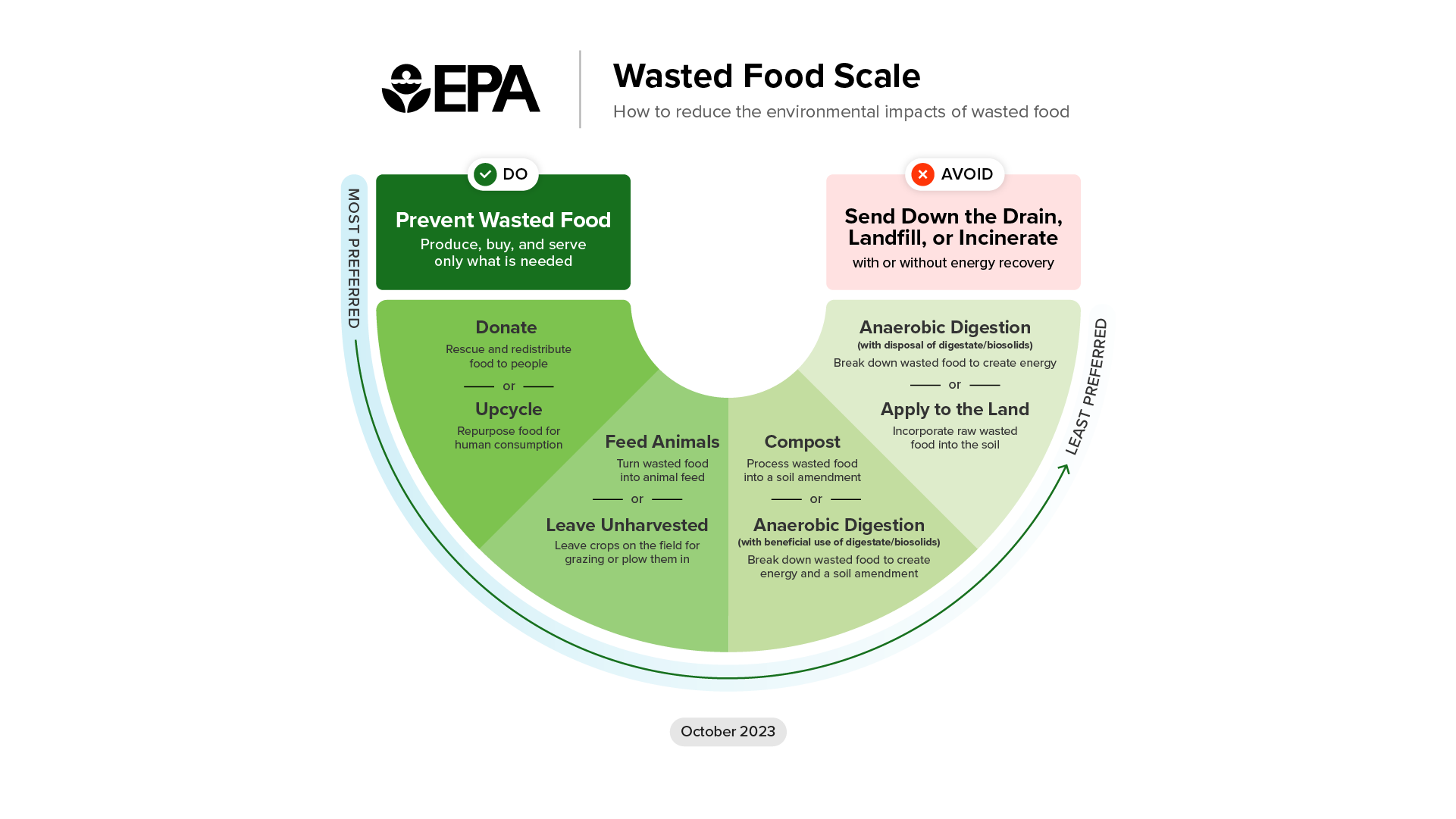Expanding Vermont’s Wasted Food Solutions: A Collaborative Effort by CET
Vermont has well-established resources and information available through the Vermont Agency of Natural Resources (VT ANR) and local solid waste management districts and alliances.
CET and VT ANR share information and best practices on wasted food prevention and diversion. Furthermore, we were honored to present at the 2016 Vermont Organics Recycling Summit and the Vermont Act 148 Business Outreach Group to help the state make progress on achieving its ACT 148 goals.
To learn more about CET’s work in Vermont and to get involved, contact CET today at 888-813-8552 or e-mail wastedfood@cetonline.org.
Wasted Food Resources for Businesses · Vermont
Below are external resources curated by waste reduction specialists and the Vermont Department of Environmental Conservation. Moreover, CET is a partner to aid your journey in combating wasted food.
- Food Scrap Volume Estimator
- Universal Recycling FAQs for Businesses and Institutions: Information sheet about the phasing in of the universal recycling law and how it will affect business and institution operations.
- Universal Recycling Materials Management Map: Connects residents, businesses, and institutions with solid waste services, haulers, composters, and food rescue agencies with sources of food and food scraps.
- VT Commercial and Residential Food Scrap Hauler Directory: Directory of food scrap haulers, updated in June 2017 by the Vermont Department of Conservation.
- VT Food Scrap Hauling How-To Guide Information on how to collect food scraps for haulers.
- Solid Waste Management Program: Information on how to properly store, treat, transport, and dispose of solid waste materials.
- Food donation guidance for Vermont businesses and institutions: Guidance from the Vermont Agency of Natural Resources and Vermont Department of Health’s guidelines on donating food from Vermont businesses or institutions.
EPA Wasted Food Scale
CET utilizes the EPA’s Wasted Food Scale as a guiding tool to assist businesses, including restaurants, universities, colleges, event organizers, supermarkets, churches, etc. Additionally, discover relevant partner resources on how to reduce the environmental impact of wasted food in your business across the scale.



